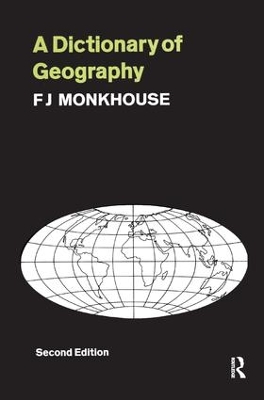The geographer seeks to describe the diverse features of the earth's surface, to explain if possible how these features have come to be what they are, and to discuss how they influence the distribution of man with his diverse activities. Geography therefore stands transitionally yet centrally between the natural sciences, the social studies, and the humanities. While in its concept and content it is an integrated whole, of necessity it impinges on the associated disciplines, and inevitably makes use of a wide range of kindred terminology. In compiling the 3,400 entries for this dictionary, the main criterion for inclusion has been usage. Geographical textbooks and periodicals have been systematically combed, and where a term has been used in a specific geographical context, or in a specialist sense which differs from general practice or popular usage, it has been included. Foreign words are listed where they have been accepted into English geographical literature, especially where no satisfactory translation exists. Cross-references are freely given, printed in small capitals, where it is necessary to assist the user in tracing cognate and supplementary entries, or where the meaning of the word thus shown is essential to the understanding of the entry. The emphasis throughout is on specific factual information, conveniently accessible on a strict alphabetical basis, rather than a bare definition. Statistical material and formulae are appended, where it would seem helpful, in the form of tables under the relevant entries. Since this dictionary is neither a gazetteer nor a compendium of current affairs, lists of countries and capitals, regional names and international groupings are not included, since these can be found conveniently elsewhere. The five hundred and seventy-two additional entries to this dictionary, together with a few minor modifications to the existing material, are the result of extensive correspondence and discussion since the appearance of the first edition. This edition, originally published in 1970, has continuing relevance as a resource for professionals.
F. J. Monkhouse was formerly chair of geography at the University of Southampton. Throughout his career he was also visiting professor at the University of Illinois, University of Maryland, Queen's University, and the Miami University(Ohio). His books include The Countries of North-Western Europe and The Lake District.
- ISBN10 1138518182
- ISBN13 9781138518186
- Publish Date 13 July 2017 (first published 12 July 2017)
- Publish Status Active
- Publish Country GB
- Publisher Taylor & Francis Ltd
- Imprint Routledge
- Edition 2nd edition
- Format Hardcover
- Pages 388
- Language English
